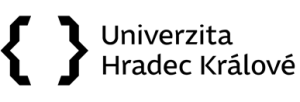Konkrétní podoba přednášky se mění v závislosti na osobě hostujícího odborníka. Výuka probíhá v anglickém jazyce.
LS 2021: Century of the irregular: Revolutions and Civil Wars in the 20th century (Dr Spyros Tsoutsoumpis):
Course aims and outline:
Why do civil wars occur? Why do people fight for or oppose revolutionary movements? What are the effects of violence and political mobilization on society? The comparative historical analysis of revolutions and civil wars calls for interdisciplinary dialogue between sociology, political science, and history. Civil wars bring radical changes in social structures as well as in states' functions and political structures that must be studied both internally and internationally. This course blends theoretical, empirical, and conceptual work on civil conflict with detailed studies of cases to achieve this goal. The course will evaluate key topics such as the changing forms and nature of civil war, the role of civilians in conflict, rebel governance, the logic of violence, and post-war reconciliation and commemoration. The course will predominantly focus on twentieth century conflicts in settings ranging from Latin America, to Europe, Russia and Asia. The course will introduce students to the approaches of military, political, economic, social and cultural history, as well as inter-disciplinary perspectives drawn from conflict studies. Students will be encouraged to develop comparisons with other time periods and other regions of the world.
The course aims to help students achieve several objectives. Students will be encouraged to identify the causes and consequences of the outbreak of the civil wars and think critically about the motives, justifications, objectives, strategies, and tactics of insurgents and counterinsurgents. The course will help students to examine how civil war is experienced from the perspectives of combatants, states and civilians and understand the impact of warfare and political mobilization on the cultural, political and gendered identities of the participants and the civilian population. More generally, the course intends to foster critical reading and critical thinking skills, encourage respectful and informed debate, promote understanding of divergent experiences and points of view, and develop links between academic knowledge and real world problems. In order to achieve this the course will engage with a variety of different historical source materials, from military records to visual propaganda, memoirs, reportage and humanitarian documentation.
- Trainer/in: Spyridon Tsoutsoumpis
